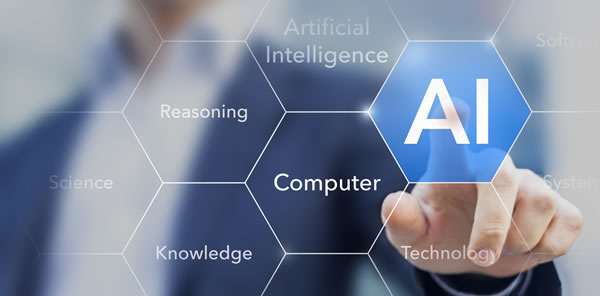We all know tomorrow will be different from today – but how? Effective strategy starts with deep strategic thinking, so in this article I suggest a few things worth considering.
Everything in our lives is being transformed – our work habits, social interactions, the way we buy and sell goods, the products and services we consume, our expectations of suppliers, the way we receive and manage information. Can you even remember life before smart phones and Google?
Keeping pace with new technology and how you can use it is probably the biggest strategic challenge facing business today. It gives you the opportunity to leap frog your competition, but also to be leap frogged. Yesterday’s standards simply don’t cut it anymore.
How can you create better products and services, with better customer experiences in a more efficient and less costly manner (read lower prices)?
Technology will deliver business efficiencies – but this is really just keeping up with the pack – you might get in front for a bit, but probably not for long. Speed of implementation is more critical now than ever, as is constant upgrading and staying current. That’s the first trend you need to know.
Take a look at your IT budget and what it consists of. An broader definition with a bigger spend could reap untold benefits.
Efficiency is however in the low end of possibilities. The real potential lies in how it can redefine your products, business processes and change the business model.
This is big picture stuff – and you simply won’t be able to do it if you are not crystal clear on where you fit in your industry and where you want to be. Being clear on purpose and your aspirations is essential. This is the essence of thinking strategically.
Strong resolve is also critical. Without it you have little more than pipe dreams.
Uniqueness and personalisation become more important in a world of duplication and standardisation – “The internet is the world’s largest copy machine. At its most fundamental level, this machine copies every action, every character, every thought we make while we ride upon it.”[i]
 Consumers ache to be different, to stand out from the pack, as illustrated by the popularity of high-end brands. This opens endless possibilities for added authenticity, personalisation and other value-adds to products and services – all now possible using technology to dissect, repackage and sell.
Consumers ache to be different, to stand out from the pack, as illustrated by the popularity of high-end brands. This opens endless possibilities for added authenticity, personalisation and other value-adds to products and services – all now possible using technology to dissect, repackage and sell.
Experiences become more valuable – e.g. popular musicians’ revival tours, making more money than when they were on top of the charts. Some call this the Experience Economy – demonstrated by the fact that concert tickets soared in price by 400% from 1981 to 2012, compared to 150% rise in consumer prices [ii]
Think also of the explosion of travel choices and related experience options. What product enhancements or add-ons can you introduce to make your offer more personal? How can you package an experience?
 Artificial Intelligence (AI) is already redefining the way we interact with the world – in the algorithms used by Google and Facebook for instance, and your point & click digital camera. Within ten years virtually every product or service will have some element of AI embedded in it. Most will be hidden, we won’t even be aware of it.
Artificial Intelligence (AI) is already redefining the way we interact with the world – in the algorithms used by Google and Facebook for instance, and your point & click digital camera. Within ten years virtually every product or service will have some element of AI embedded in it. Most will be hidden, we won’t even be aware of it.
How can you build decision-making processes into your consumer interactions and product use? What are your customers trying to get done? How can you use digital smarts to make it easier for them?
The upsurge in sharing is predicated on different attitudes to asset use. Some even suggest that individual ownership of many assets will be a thing of history.
“Uber, the world’s largest taxi company, owns no vehicles. Facebook, the world’s most popular media owner, creates no content. Alibaba, the most valuable retailer, has no inventory. And Airbnb, the world’s largest accommodation provider, owns no real estate. “[iii]
The trend is for individuals to create the products (media) and provide assets (vehicles or property). The business model is as the medium of exchange, to manage the transaction, rather than as a traditional supplier.
Is there potential in your industry for intermediaries to infiltrate and disrupt your market? Can collaboration with others generate more efficient transactions? Can you increase your capacity by accessing things that other people own?
The ability to break things into their component parts and reorder them or deal with them differently is another trend that creates new opportunities.
A lot of music is now made in piecework – for instance one of my friend’s sons describes himself as being in the music business rather than a musician. He lays down a rhythm, and then contracts musicians (over the web) to expand on this, to complete and then record the music. He then contracts others to write lyrics, and someone else to sing it. He owns and publishes the finished song. Whilst living in Melbourne, (about to do his Year 12 studies) he has a New York manager and is currently negotiating a contract with Sony. His first single received over 1million hits on YouTube, and he is profitable.
Where does the real value lie within your value-chain? How can you focus on the most profitable part of your process and have others do the other bits?
Consumer markets are fragmenting, and niches becoming ever smaller – “new volumes and sources of data are also taking many businesses closer to the nirvana of catering to a ‘segment of one’ at a mass scale (think Spotify’s Discover Weekly, which sees over 40 million users receive a unique playlist every Monday).” [iv]
 The number of competing options grows daily, and as segments become more precise, the expectations of consumers become ever higher. Last year’s standards are likely to be found wanting.
The number of competing options grows daily, and as segments become more precise, the expectations of consumers become ever higher. Last year’s standards are likely to be found wanting.
Smart marketers gather detailed information about their consumers and their transaction experiences. Try going incognito and buy some of your own stuff, and see what you learn.
How can you improve the transaction experience? How can you redefine your offer to make it more closely aligned with your customers?
In essence my message is to think deeply about how technology shifts might impact your business, and how you can create advantage over your competitors. This is a never-ending game, so the sooner you start, the better prepared you will be.
I have offered some insights, but it is far from definitive – intended rather as a teaser. Go exploring! Do the deep thinking, but make sure you bring the rest of the team with you.
If you have a Board, be aware they can make poor decisions as Directors often aren’t as smart as they think. Without management buy-in, execution is likely to fail, so you need everyone fully committed.
© David Shelton, Principal, Transition Capital, May 2017
[i] Kevin Kelly – The Inevitable. Understanding the 12 technological forces that will shape our future. Viking 2016
[ii] https://www.whitehouse.gov/blog/2013/06/12/rock-and-roll-economics-and-rebuilding-middle-class]
[iii] http://trendwatching.com/trends/5-trends-for-2017
[iv] Tech Crunch – https://techcrunch.com/2015/03/03/in-the-age-of-disintermediation-the-battle-is-all-for-the-customer-interface/

